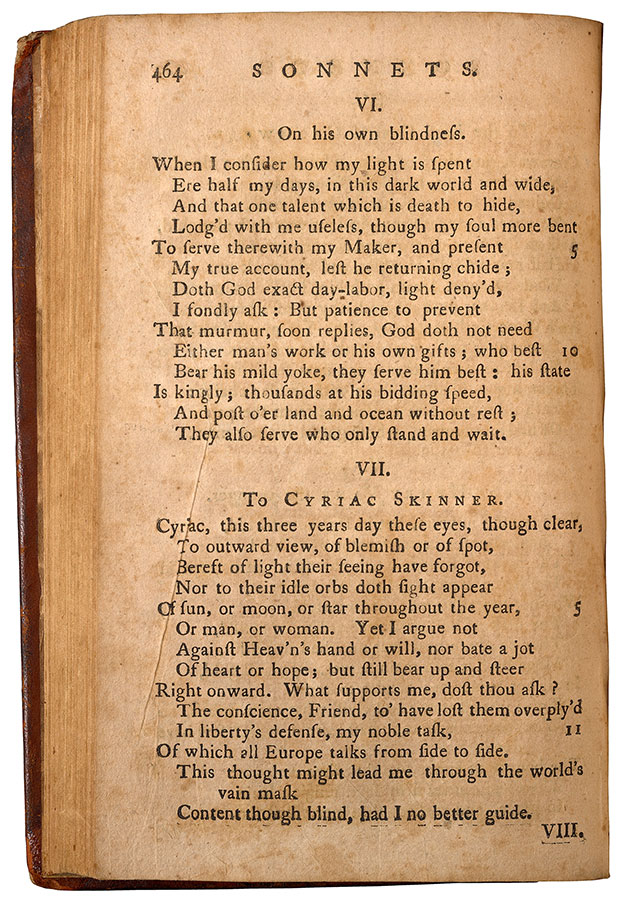1777 Edition

Paradise Lost: A poem, in Twelve Books. The Author /John Milton. With the life of Milton. By Thomas Newton,D.D. [Eight lines from Thomson]
Philadelphia: Printed by Robert Bell, in Third-Street, 1777.Vol. II.
Purchased by Pierpont Morgan, 1911
In Bell's edition, Milton's two sonnets on the subject of his blindness are printed together on one page. Sonnet 22 (here numbered VII) is a Petrarchan sonnet addressed to his pupil and friend, Cyriack Skinner (1627–1700). Written in late 1654 or early 1655, three years after Milton had become totally blind, it remained unpublished during Milton's lifetime. The manuscript is written in Skinner's hand, indicating that Milton dictated it to him. Both sonnets innovatively blur the distinction between the octave and sestet, continuing the syntax and sense between the eighth and ninth lines by enjambment to more closely approximate the natural rhythms of the speaking voice. This fluidity and continuity, in which, according to Milton's note, "the sense [is] variously drawn out from one verse into another," is also a notable element in the poetic accomplishment of Paradise Lost.
Cyriack, this three years day these eys, though clear
To outward view, of blemish or of spot;
Bereft of light, thir seeing have forgot,
Nor to thir idle orbs doth sight appear
Of Sun or Moon or Starre throughout the year,
Or man or woman. Yet I argue not
Against heavns hand or will, nor bate a jot
Of heart or hope; but still bear up and steer
Right onward. What supports me, dost thou ask?
The conscience, Friend, to have lost them overply'd
In libertyes defence, my noble task,
Of which all Europe talks from side to side.
This thought might lead me through the worlds vain mask
Content though blind, had I no better guide.